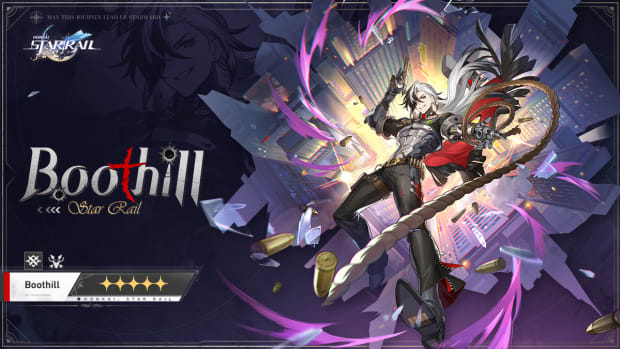
Ubisoft on Rocksmith+: ‘You really have to play the hits first’
First impressions stick, on Google and in people’s minds. If you do a quick search for Rocksmith+, the live-service evolution of Ubisoft’s classic music game, you mostly see reviews lamenting the game’s “barebones” song selection or community posts filled with disappointment. Series producer Jason Schroeder tells GLHF that view doesn’t reflect how much Rocksmith+ grew over the past 12 months or what lies ahead. He understands why it’s a tough impression to shake, though, and that understanding helped turn Rocksmith+ into a richer, more dynamic, player-centric platform.
In September 2022, Rocksmith+ launched with a bit of a communication problem. Ubisoft turned what was once a premium game into a live-service platform with plans to release substantial updates every few weeks. The team more than lived up to their promise. The goal was releasing 50 new songs per month, with full transcriptions. Schroeder says they exceeded that goal every month in the last 12 months and have added over 1,000 new songs since launch – and learned a few lessons in the process.
Part of the trouble came from creating and managing expectations. Schroeder and his team viewed Rocksmith+ as an opportunity. Where the previous Rocksmith game launched with limited features and doubt over whether the team could even publish patches or DLC for it, this was a chance to be more responsive to community requests and keep Rocksmith updated and fresh for years to come.
Except fans didn't see it that way.
"We were like, 'Oh, it's live ops, now, and everyone's gonna get that,'" Schroeder says. "But in reality, I think it was more that fans wanted the complete product. We were a little bit naive, maybe, in saying that we'd get started, and everyone would come along for the journey. In reality, I think everyone was hoping the journey wasn't starting at step one."
One of the biggest points of contention was the track selection, which wasn't quite what the Rocksmith community expected.
“I think as every wedding DJ will tell you, you’ve got to play the hits before you get experimental, you really got to play the hits. We kind of convinced ourselves that [since] our Rocksmith community is so positive and encouraging, they'll come along on this journey with us because we're literally adding hundreds of songs. But that doesn't change the fact that the first impression was a lot of songs where people thought ‘this isn't what I know Rocksmith for, and this isn't what I came for.’”
One of Rocksmith’s anniversary celebrations includes the first fruits of a new licensing contract with Warner Music, which lets the team add long-requested classics from artists such as The Cure, Linkin Park, and Twisted Sister. Schroeder says additional licensing deals are in the works, and the team plans to add a mix of experimental selections, classics, and fan favorites as Rocksmith+ continues to grow.
A community-driven approach to song selection was just one part of Rocksmith+’s first year. Schroeder also had to step back and accept that the vision guiding the team just wasn’t fitting with what players wanted and needed.
“There's so many resources out there for people to learn an A chord,” Schroeder says. “We thought ‘let’s give them something new.’ We produced videos of how to rapidly mic and amp for your live gig, which is like, wow, that's a really cool, interesting piece of content, right? But when someone is asking ‘how do I use the practice tool in this software that I like?’ we realized we were kind of getting ahead of ourselves.”
So the Rocksmith team went back to square one, literally. After launch and hearing extensive feedback from the community, they produced and published over 150 videos covering the basics – everything from how to use the software itself to basic music theory packaged in an approachable way. Schroeder says that, rather than bogging people down with terms and details, they struck a balance by teaching what they need to know and showing them how to use it.
“You don't need to know much about [terms and specifics] to help someone understand an accent is louder,” Schroeder says. “And when we highlight it with this bright color is just like, ‘oh, I never knew what that meant. I just thought my screen looked weird.’ And I think that way [of learning] is more essential.”
Ubisoft is putting those lessons to use for Rocksmith’s biggest addition, the first new instrument added to a Rocksmith game in almost 12 years: piano. Later in October 2023, Ubisoft will roll out support for piano and keyboard in Rocksmith+, including an initial library of 300 songs ranging from “Happy Birthday” – Schroeder said it’s one of the most-requested songs – to Billy Joel and Alicia Keys. There’s a selection of classical music in the mix as well, which Schroeder says is another first for the franchise.
Piano is a natural fit, Schroeder tells me. The team considered several instruments before settling on piano, including drums, but the versatility of digital keyboards and the piano’s role in teaching fundamentals for practically every other instrument made it the best choice.
“There's an audience for it, of people trying to take piano lessons or hoping that their kids take piano,” Schroeder says. “And school curriculum is always in the back of our heads. Music programs aren't as well funded as they used to be, so we’re trying to fill some part of that gap for people, families, and learners. It just seemed like such an essential place to go.”
It’s also easier to manage for more people, with fewer space requirements – and noise problems – compared to something like percussion instruments.
Community feedback about approachability and fundamentals helped shape the team’s approach to piano. Schroder tells me that the team faced concerns over piano being too overwhelming, with considerably more notes on screen and keys to manage. However, the approach they refined for guitar transferred seamlessly to piano.
“They just find themselves clicking in and entering a game design flow state,” he says. “It's not as overwhelming once you started to not worry about those notes over there and these keys out here. You just need to focus on one thing at a time.”
The Rocksmith team, meanwhile, is focusing on much more than just one thing at a time. In addition to expanding the guitar offerings and rolling out piano, Ubisoft is working on a console port for Rocksmith+. The port has run into a few snags, not least of which is the challenge of the PS5 and Xbox Series X|S having nothing like the Rockband Keyboard peripherals you could plug into your PS3 and Xbox 360. These ports and more features will come, eventually, but for now, Schroeder is pleased with how far Rocksmith+ has come in a year.
“We still have a long way to go, but I think we’ve matured as a live service. I’m really proud that the team has been able to keep up with new releases, bug fixes, and improvements, and I’m excited to keep expanding. We’ve got some cool surprises in store.”






